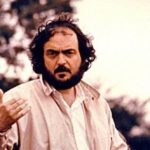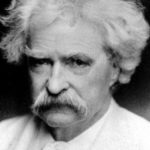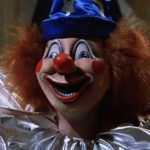 History
History  History
History  History
History 10 “Modern” Problems with Surprising Historical Analogs
 Health
Health 10 Everyday Activities That Secretly Alter Consciousness
 History
History Top 10 Historical Disasters Caused by Someone Calling in Sick
 Animals
Animals 10 New Shark Secrets That Recently Dropped
 Movies and TV
Movies and TV 10 Forgotten Realities of Early Live Television Broadcasts
 Technology
Technology 10 Stopgap Technologies That Became Industry Standards
 Weird Stuff
Weird Stuff 10 Wild Facts About Taxidermy That You Probably Didn’t Know
 Travel
Travel 10 Beautiful Travel Destinations (That Will Kill You)
 Miscellaneous
Miscellaneous 10 Modern Marriage Rituals Born from Corporate Branding
 History
History 10 Extreme Laws That Tried to Engineer Society
 History
History 10 “Modern” Problems with Surprising Historical Analogs
 Health
Health 10 Everyday Activities That Secretly Alter Consciousness
Who's Behind Listverse?

Jamie Frater
Head Editor
Jamie founded Listverse due to an insatiable desire to share fascinating, obscure, and bizarre facts. He has been a guest speaker on numerous national radio and television stations and is a five time published author.
More About Us History
History Top 10 Historical Disasters Caused by Someone Calling in Sick
 Animals
Animals 10 New Shark Secrets That Recently Dropped
 Movies and TV
Movies and TV 10 Forgotten Realities of Early Live Television Broadcasts
 Technology
Technology 10 Stopgap Technologies That Became Industry Standards
 Weird Stuff
Weird Stuff 10 Wild Facts About Taxidermy That You Probably Didn’t Know
 Travel
Travel 10 Beautiful Travel Destinations (That Will Kill You)
 Miscellaneous
Miscellaneous 10 Modern Marriage Rituals Born from Corporate Branding
10 Times Famous Directors Made Unexpected Surprising Films
Every once in a while, a film catches us sleeping. Each director has their vision, their process, and their oeuvre. But even the most visionary of auteurs can be prone to trying something new—expectations be damned!
Whether good or terrible, for better or worse, many filmmakers have worn their sudden change of heart on the big screen for everyone to see, putting out a solitary film that doesn’t represent, and often runs contrary to, their other work. No matter if they were compelled to do so by outside forces, owed a favor to their producer or family, or simply wanted a change of pace, 10 serious movie makers have left us with these films that came out of nowhere.
Related: Top 10 Underappreciated Directorial Debuts You Need To See
10 Hugo (2011)
While his range is vast, spanning many subjects, genres, and time periods, Martin Scorsese is a director best known for movies that dig down into America’s seedy underworld with weighty themes of redemption, class relations, and Roman Catholicism. More often than not led by Robert De Niro or Leonardo DiCaprio, Scorsese’s hard-hitting crime epics span his career and include such household titles as Goodfellas (1990), The Departed (2006) and The Irishman (2019).
However, in 2011, Scorsese threw caution (or common sense) to the wind and came out with a children’s book adaptation, shot in 3D and set in 1930s Paris. Hugo is the story of Hugo Cabret (Asa Butterfield), a young boy who lives in the walls of Gare Montparnasse, maintaining the station’s clocks, avoiding the authorities, and repairing a broken automaton in the attic. No DiCaprio, no De Niro, and no cocaine or mob hits.
But why such a change of pace for the veteran director 40-plus years into his career? According to the man himself, his wife wanted him to make a film their 12-year-old daughter could see—so he did![1]
9 The Straight Story (1999)
David Lynch may be everyone’s least favorite Dune director, but you’d have to go far to find someone who doesn’t proclaim him the master of dreamy yet painstakingly complex surrealist cinema. Whether rejuvenating black and white horror with Eraserhead (1977); carving himself a neo-noir niche in Blue Velvet (1986), Lost Highway (1997) and Mulholland Drive (2001); or wrangling Nic Cage in the crime-romance subgenre for Wild at Heart (1990), Lynch’s disjointed, formalist approach to filmmaking is viscerally present throughout.
So how does the reigning champ of narrative hijinks, multidimensional themes, and unreliable perspectives keep things fresh? By making a film containing absolutely none of the above. The Straight Story follows Alvin (Richard Farnsworth), a WWII vet who makes a 240-mile journey on a John Deere Lawn Tractor to visit his estranged brother.
This one does what it says on the tin, with a straightforward road movie all about connection and simple humanity. The Straight Story is not just an oddity for its down-to-earth narrative, but because it’s the only of Lynch’s films for which he didn’t write the script. Just as in Scorsese’s case, it was a woman who sold him the idea—Lynch’s then-girlfriend Mary Sweeney wrote the film and helped him fall in love with it.[2]
8 School of Rock (2003)
Richard Linklater is known for experimental films like A Scanner Darkly (2006) and Boyhood (2014) and weightier adult dramas that dabble in philosophy like the Before trilogy (1995-2013) and Waking Life (2001). While the director’s generic choices are typically reflexive and frequently chase new approaches to narrative and storytelling, he is not above making something conventional to be enjoyed by the masses.
School of Rock is the director’s only children’s musical comedy to date, centering around the rock ‘n’ roll lush Dewey Finn (Jack Black) and the connection he makes with a class of schoolkids while pretending to be their substitute teacher. From both a narrative and technical standpoint, it is difficult to recognize School of Rock as a Linklater film. Yet snappy cuts, creative shots, and a well-ironed screenplay make it a masterclass in just good, solid filmmaking.
Nobody—including Linklater himself—wanted the director to make the film, fearing it would be the death of the project. Nonetheless, producer Scott Rudin persisted, believing him to be the only man for the job, and (lucky for us!) eventually got his way.[3]
7 Eternals (2021)
Chloé Zhao made waves in the movie industry in 2020 with her moody indie hit Nomadland. This was thanks to its unflinching portrayal of life on the edge of society, blending social realism with deep and dusky visuals, a cast largely assembled from real people, and a quietly consuming lead performance from Frances McDormand. This builds on the aesthetic, thematic, and character-driven ideals of Zhao’s earlier films, establishing a consistent thread from her earlier shorts to the present.
Her unexpected entry in the Marvel Cinematic Universe, Eternals, changed everything. With a $200 million budget and an all-star cast including Angelina Jolie and Salma Hayek, the film operates on a global scale with large action set-pieces and CGI out the wazoo. Fans of Zhao who went in expecting a tender and nuanced superhero drama in the mold of Nomadland were sorely disappointed, and the critical backlash was immediate and severe.
But Zhao doesn’t recognize the distinction between Eternals and her wider works, claiming the film as a development of her style, fitting into neither the indie nor big studio format but fusing both.[4]
6 Aladdin (2019)
Guy Ritchie came to prominence on the back of Lock, Stock and Two Smoking Barrels (1998), a London gangster flick that made stars of footballer Vinnie Jones and diver Jason Statham in one fell swoop. Ritchie cemented his reputation with the critically lauded Snatch two years later and has spent the majority of the years since turning the cream of British acting talent into cockney hard-men.
Until 2019, Ritchie’s style and themes were a love affair with criminality, traditional masculinity, and the lighter side of extreme violence. Whether on the mean streets of contemporary London, deep within the world of Sherlock Holmes, or traversing the realm of King Arthur, his films are defined by macho characters caught in brutal, action-fuelled plots. Until Aladdin.
The live-action remake of the 1992 Disney film proves there are few doors the House of Mouse’s pocketbook can’t open. Like Scorsese and Lynch before him, the allure of making something his whole family could enjoy was too much, and Ritchie caved to the entertainment conglomerate. The director’s style gives way to the simple staging and soft, CGI-laden aesthetic that have become the default of modern blockbuster cinema—and there’s not a foul-mouthed cockney in sight.[5]
5 The Hitchhiker’s Guide to the Galaxy (2005)
Like many Gen X directors still working today, Garth Jennings came up through music videos, filming clips for huge artists like Pulp, Blur, and R.E.M. But his career after that has been anything but typical. His credits include the indie comedy Son of Rambow (2008), animated musical Sing (2016), and its sequel Sing 2 (2021). Still, the most notable of his accomplishments is his adaptation of Douglas Adams’ masterwork The Hitchhiker’s Guide to the Galaxy.
The absurd sci-fi comedy sees Arthur Dent (Martin Freeman) swept out of his humdrum life in England and into an intergalactic adventure in the company of depressed androids, two-headed men, and, of course, outer-space hitchhikers. Loaded with British comedic sensibilities, a top-tier cast, and an affectionate regard for its source material, this is the film that ought to have defined Jennings’s career.
But it didn’t. Jennings’s work has been piecemeal ever since, and he hasn’t returned to anything remotely similar. Perhaps because he never even wanted to make it in the first place, as he was working on Son of Rambow and felt the Hollywood system would ruin such a cultural treasure. But the script took him, and the rest is history.[6]
4 The Empire Strikes Back (1980)
Director Irvin Kershner was once known for his human dramas and comedies—idiosyncratic films like The Hoodlum Priest (1961) that treasured character over the spectacle many of his USC students worked in. That was until one George Lucas came along, not only influencing Kershner’s filmmaking but also changing his life.
When it came time for Lucas to put the second installment of the Star Wars saga, The Empire Strikes Back, to film, he no longer felt directing was for him. He lamented the myriad daily struggles that put him at odds with the artistic process and left him unable to fulfill his vision. Thus, he sought the talents of his former film tutor.
Lucas provided the story and oversight as a producer, while Kershner took charge behind the camera, and the pair rewrote the script and edited the final cut together. This combination resulted in the best film of the entire franchise but shifted Kershner’s output toward big-ticket studio movies—although he never made a space feature again.[7]
3 The House with a Clock in Its Walls (2018)
Prior to 2018, Eli Roth was a crown prince of the splatter horror subgenre. He brought us Cabin Fever (2002), two Hostels (2005; 2007), and The Green Inferno (2013), all sporting a total disregard for good taste and challenging viewers’ tolerance for onscreen gore. Yet somehow, the director was willing to abandon this to make a children’s fantasy comedy with Jack Black.
The House with a Clock in Its Walls follows 10-year-old orphan Lewis (Owen Vaccaro) as he goes to live in his eccentric Uncle Jonathan’s (Jack Black) magical house, where he accidentally wakes the dead. In theory, such subject matter shouldn’t be a million miles from Roth’s typical repertoire—something the director admits himself.
He said he was directly inspired by films like E.T. and Poltergeist, seeing not only a connection between his horror work and family fantasy films but also between these genres in general. And Stephen Spielberg, a secret fan of Hostel and founder of The House with a Clock in Its Walls’ production company Amblin Entertainment, agreed. But the film doesn’t exactly fit comfortably within his filmography. [8]
2 Avatar: The Last Airbender (2010)
At this point, M. Night Shyamalan is so well known for his twists it should go without saying. Since that big narrative surprise at the end of Sixth Sense (1999), the director has made a habit of tense psychological thrillers and horrors that lead viewers up the garden path, tap them on the shoulder, and run away.
And, critics be damned, he’s been doing what he does best ever since, except for that one time he made a Hollywood blockbuster: Avatar. Not *that* Avatar movie—the other one. Avatar: The Last Airbender. Based on the children’s animated series of the same name, the film failed to translate the adventures of Aang the Avatar onto the silver screen with any success.
Not only did Shyamalan not end up making a planned sequel, but he hasn’t made anything of the same ilk since. And there’s good reason for that—the director admits he did Avatar primarily to escape the critical battering he was getting for making the twist-laden horror-thrillers he loves, misguidedly seeking to “join the system” and toe the line.[9]
1 Star Wars: The Last Jedi (2017)
Few contemporary directors have made such a niche for themselves within the mystery genre as Rian Johnson. His feature debut Brick (2005) relocated the neo-noir mystery to a U.S. high school before he made mystery caper The Brothers Bloom (2008), time-travel action puzzler Looper (2012), and two Knives Out murder mysteries (2019, 2022). So why was he chosen to lead one of the biggest space blockbusters of all time?
The Last Jedi picks up the threads J.J. Abrams spread through the universe in the film’s predecessor, The Force Awakens (2015), and ties them in knots. The film shocked audiences and critics alike by thumbing its nose at Star Wars convention, killing the Big Bad mid-trilogy and turning its hero into a zero.
Although Johnson was announced for the position in 2014—before The Force Awakens had hit screens—he wasn’t the first choice. Producer Kathleen Kennedy initially approached Abrams, hoping to sign him up for the whole trilogy, but when he declined, she had to look elsewhere.
It was ironic, then, that Abrams was eventually convinced back to tie up trilogy-closer. The Rise of Skywalker (2019) attempted to service a vocal minority of fans who had balked at Johnson’s approach. With all the furor, we can’t blame Johnson for not going near sci-fi again.[10]








